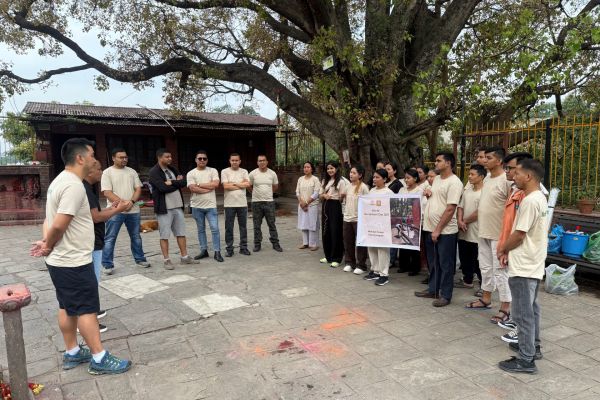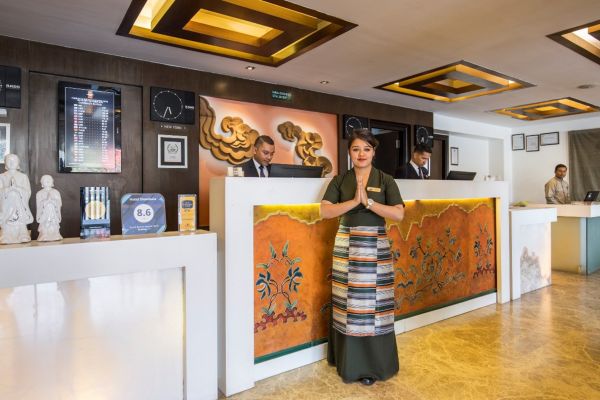A Business Traveler’s Guide to Nepal

Nepal, with its blend of ancient culture and modern amenities, is fast becoming a destination for business travelers. This guide aims to help you navigate your business trip with ease, offering tips on everything from visa requirements to cultural practices, ensuring your visit is productive and memorable.
1. Visa and Entry Requirements for Business Travelers
Securing the correct business visa to Nepal is vital. Most travelers can obtain a visa upon arrival at Tribhuvan International Airport or via land entry points, but applying in advance is recommended to avoid delays. Ensure you have a valid passport (minimum six months of validity) and carry a letter of invitation from your host company in Nepal.
2. Best Business Hotels and Accommodation Options
For a seamless stay, choose business hotels in Kathmandu that offer essential amenities such as high-speed Wi-Fi, meeting rooms, and concierge services. Hotels like Hotel Shambala provide luxury along with business-friendly features.
3. Navigating Transportation and Connectivity
Nepal’s transportation system can be complex but manageable with the right approach. While domestic flights in Nepal connect major cities like Pokhara, Biratnagar, and Chitwan, ground travel offers flexibility for those keen to explore. Private cars, taxis, and ride-sharing apps like Pathao and Indriver are widely available, ensuring efficient travel. Eco-conscious travelers will be pleased to find electric vehicle airport pickups offered by select hotels including Hotel Shambala.
4. Understanding Nepalese Business Etiquette and Culture
Cultural awareness is a cornerstone of doing business successfully. Nepalese customs emphasize respect, politeness, and formality. A respectful “Namaste” goes a long way in building rapport. Dress conservatively, particularly in formal business settings, and address senior members with their titles. Business etiquette in Nepal often involves flexibility, so plan for potential delays due to traffic or scheduling.
5. Staying Connected with Reliable Communication Services
Business travelers need robust connectivity. Purchase a local Nepali SIM card from Ncell or Nepal Telecom authorized outlets to stay connected and they are also available at the airport past the baggage claim area. Providers offer comprehensive coverage with affordable data plans. While Wi-Fi is widely available in restaurants & hotels including Hotel Shambala, maintaining a personal mobile data backup is a smart choice for uninterrupted connectivity during meetings or virtual conferences.
6. Health, Safety, and Travel Tips
Travel safety in Nepal is generally good, but it’s wise to follow basic precautions. Stick to bottled or filtered water, stay updated on vaccination requirements like hepatitis A and typhoid, and pack essential medications. Air quality in Kathmandu can be challenging; travelers with respiratory issues should bring appropriate masks.
7. Exploring Kathmandu’s Business Hubs and Opportunities
Kathmandu serves as the heart of Nepal’s business activities, hosting embassies, international organizations, and major corporations. Visit neighborhoods such as Thamel, Lazimpat, and Patan for business meetings or networking events. Pokhara and Biratnagar are also emerging as dynamic business centers, offering opportunities for investors and entrepreneurs.
8. Currency Exchange and Financial Services in Nepal
Managing your finances effectively is crucial. Nepali Rupee (NPR) is the currency, and while ATMs in Nepal are widely available, it’s advisable to carry cash for smaller transactions. Major credit cards are accepted at high-end establishments, and digital payment methods are growing in popularity, enhancing convenience for international business transactions.
9. Networking Over Authentic Nepali Cuisine
Sharing meals is a key part of networking in Nepal. Enjoy local dishes like momo (dumplings) and dal bhat while fostering relationships with local partners. Dining together helps create a relaxed atmosphere and deepens professional bonds, whether at high-end restaurants or traditional eateries.
10. Embracing Sustainability and Social Responsibility
With a focus on sustainability, many businesses in Nepal are adopting eco-friendly practices. Travelers can support these initiatives by minimizing plastic use, collaborating with local vendors, and engaging with community projects. It’s a great way to demonstrate corporate social responsibility while making a positive impact.










